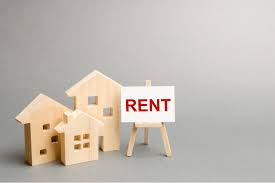
Here are the search queries I’ll use to gather the most up-to-date and relevant information:

Operating a short-term rental in Dubai is not as simple as listing a spare room. It is a regulated activity overseen by the Dubai Department of Economy and Tourism (DET), formerly DTCM. Compliance with their Holiday Home regulations is mandatory.
1. Holiday Home Permit/License: * Mandatory Requirement: Any property rented out for short-term stays (less than six months) must have a valid Holiday Home permit from the DET. Operating without one can result in significant fines (up to AED 5,000 for a first offense, with harsher penalties for repeat violations, including eviction of guests, delisting, and even imprisonment).
* Who Needs It: This applies to individual property owners, tenants (with landlord approval), and corporate entities managing multiple holiday homes. * Application Process: * Account Creation: Register an account on the DET (formerly DTCM) website. * Document Submission: Provide necessary documents including: * Passport or Emirates ID of the owner/applicant.
* Title deed or valid tenancy contract (if a tenant is operating). * Landlord’s No Objection Certificate (NOC) if you are a tenant or if the property requires a community NOC from building management/developer. * Floor plan of the property. * Recent utility bill as proof of address. * Property Classification: The property will be inspected and classified (e.g., Standard, Deluxe, Luxury) based on quality, furnishings, and amenities.
This classification influences the Tourism Dirham Fee. * Fee Payment: Pay the required permit fees. Initial registration is approximately AED 1,520, with additional permit fees varying per bedroom (e.g., around AED 370 for a one-bedroom apartment). * Inspection & Approval: The property must pass safety, cleanliness, and quality inspections to meet hotel standards. * Annual Renewal: The permit is valid for one year and requires annual renewal, with associated fees and ongoing compliance checks. * Company Setup for Multiple Units: If managing more than eight units, individuals are typically required to set up a licensed company and obtain a trade license for holiday home operations.
2. Guest Management and Data Handling: * Mandatory Guest Registration: Operators must register all guests with the DET’s HH 2.0 system (Holiday Home system). * Secure Data Storage: Guest data must be securely stored for a minimum of five years and be accessible for audits. * Keyless Entry Systems: If using smart locks, they must be from DET-approved providers, and access granted only after guest identity verification. * Community Platform Requirements: Properties in master communities (e.g., Emaar, Damac) may also need to submit guest data to their respective community access portals.
3. Safety and Maintenance: * Strict Standards: Properties must adhere to specific safety standards, including compulsory smoke detectors in every room, readily available fire extinguishers and first-aid kits, and clear emergency exits. * Regular Maintenance: Landlords are responsible for frequent cleaning after each rental, checking electrical and plumbing equipment, and promptly replacing worn-out items to ensure tenant safety and comfort, meeting hotel standards.

Understanding the various fees and taxes is critical for pricing and profitability.
1. Personal Income Tax (0% for Individuals): * No Direct Income Tax: For individual owners, rental income from short-term properties in Dubai is generally not subject to personal income tax at the federal level. The UAE maintains a 0% personal income tax rate for individuals, regardless of income type (salary, rental income, capital gains).
* Corporate Tax for Licensed Activities: However, if an individual’s short-term rental activities are conducted through a commercial license or as a formal business (e.g., owning and managing a large portfolio professionally), their profits exceeding AED 375,000 might be subject to the 9% Federal Corporate Tax. This primarily targets sole establishments or individuals whose short-term rental operations resemble a structured business. Most casual or small-scale individual Airbnb hosts are unlikely to hit this threshold or fall under the “licensed business activity” criteria for Corporate Tax on their rental income.
2. Value Added Tax (VAT – 5%): * Applicability: Unlike long-term residential leases, which are generally exempt from VAT, short-term rentals are considered a taxable supply under UAE VAT law. This means that services provided to guests, including the rental fee, cleaning fees, service charges, extra guest fees, and pet fees (excluding refundable security deposits), are subject to 5% VAT. * Registration Threshold: If an Airbnb host’s annual taxable income (from short-term rentals and any other taxable supplies) exceeds the mandatory VAT registration threshold of AED 375,000, they must register for VAT with the Federal Tax Authority (FTA). * Responsibilities: VAT-registered hosts must: * Charge 5% VAT on all applicable fees to their guests. * Issue VAT-compliant invoices.
* File VAT returns periodically (typically quarterly or monthly) with the FTA. * Maintain proper records of rental income, expenses, and VAT invoices for at least five years. * Input VAT Recovery: VAT-registered hosts can reclaim input VAT on their eligible business expenses related to the short-term rental activity (e.g., property maintenance, furnishings, cleaning supplies, marketing costs).
3. Tourism Dirham Fee (Tourism Tax): * Mandatory Levy: This is a per-night, per-unit fee that all holiday home operators must collect from their guests and remit to the DET. It directly supports Dubai’s tourism initiatives. * Rates (as of 2025, subject to change): * Standard classification: AED 10 per bedroom per night. * Deluxe classification: AED 15 per bedroom per night. * Collection and Remittance: Hosts must clearly display this fee as a separate charge on invoices and remit it to the DET via their online portal, typically by the 15th of the following month for the previous month’s collections. The fee is collected for a maximum of 30 consecutive nights of stay.
4. Municipality Housing Fee (Local Tax/Fee): * In Dubai, a 5% municipality housing fee is generally applicable on the annual rental value of properties. While this fee is primarily associated with long-term rentals and often included in the tenant’s DEWA bill, for short-term rentals, it’s typically accounted for within the operational costs of the holiday home operator. Some sources indicate this might be levied as 4% of the rental value for short-term rentals by the municipality. It’s crucial for operators to factor this into their pricing.

By thoroughly understanding and adhering to Dubai’s robust regulations and tax requirements, Airbnb hosts and short-term rental operators can unlock the immense potential of the emirate’s thriving tourism market, ensuring a smooth, compliant, and profitable venture in 2025 and beyond.
WATCH MORE: https://www.youtube.com/watch?v=CFH73HQWFOg
READ MORE: REITs in UAE: Powerful Tax Efficiency & Profit Potential
